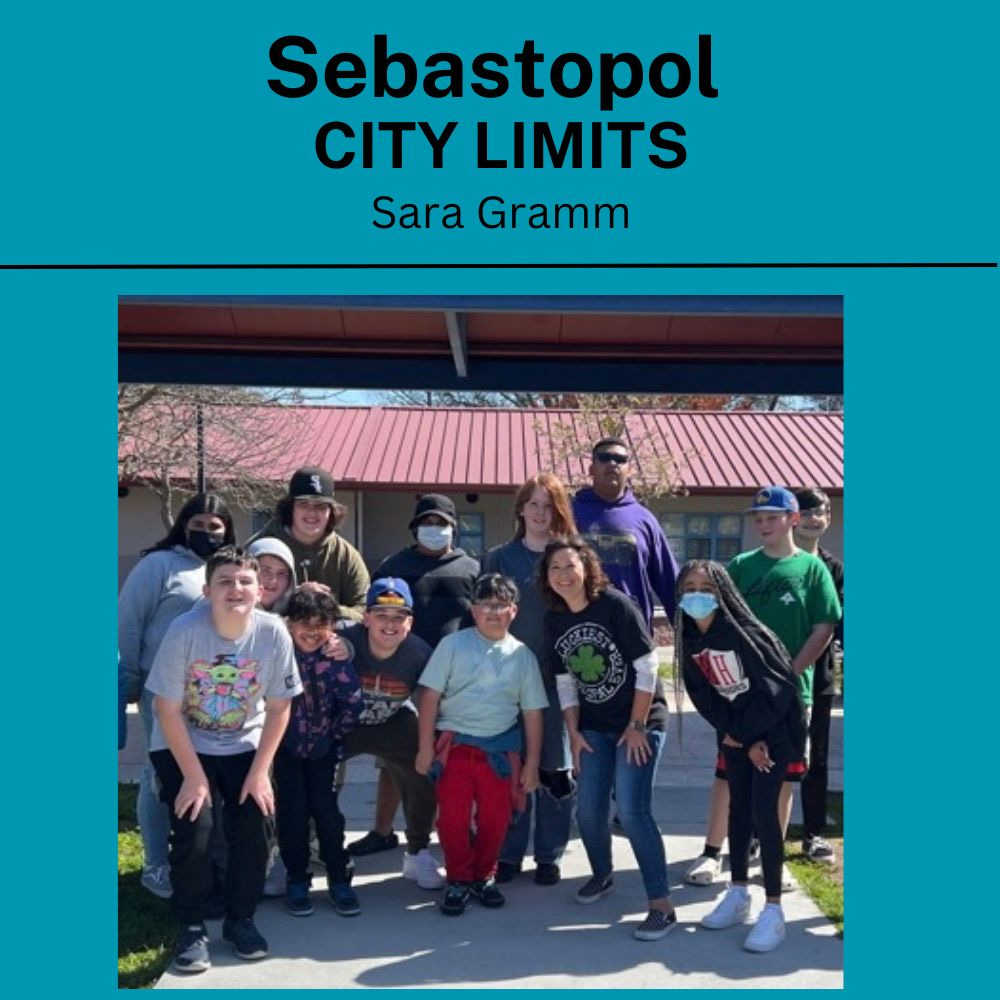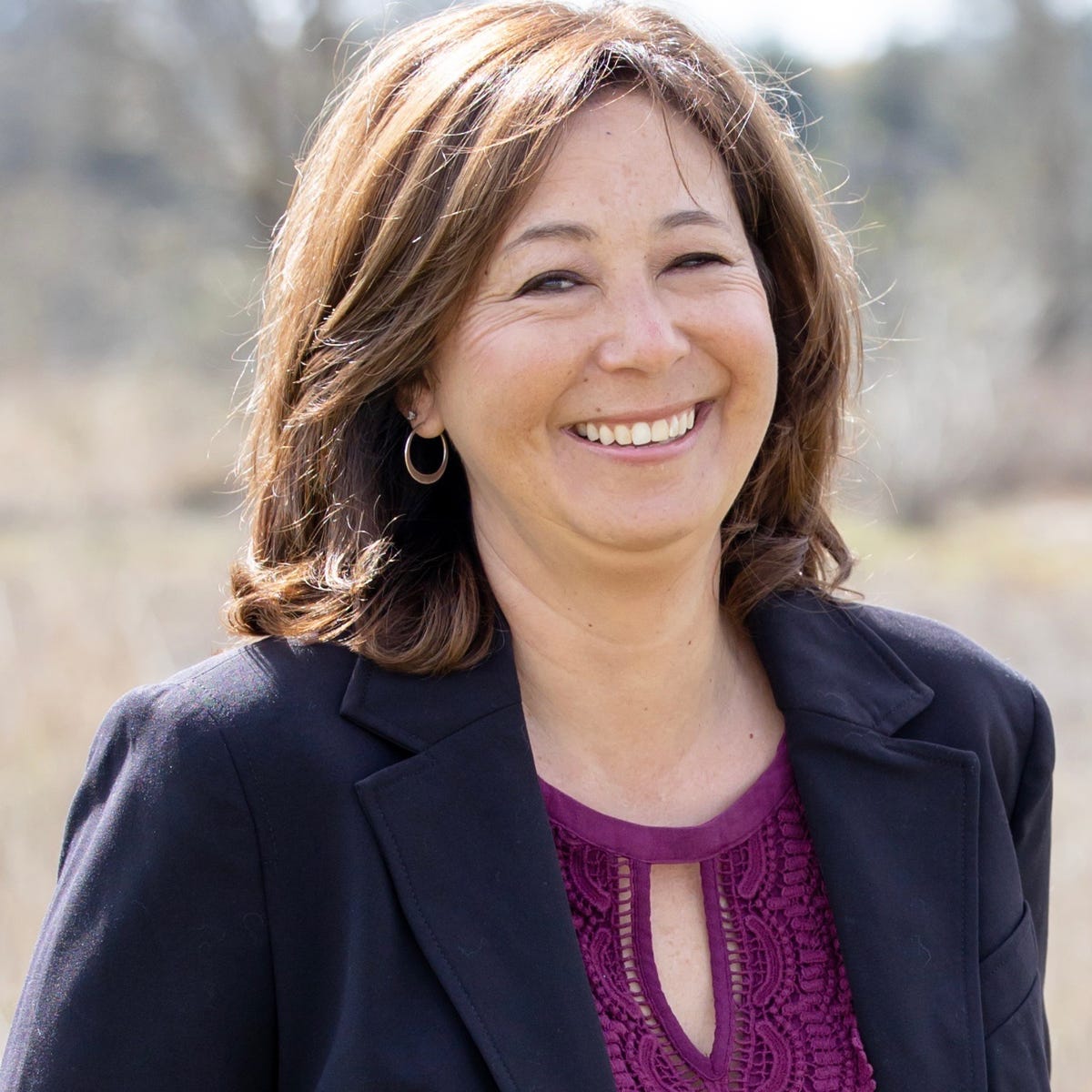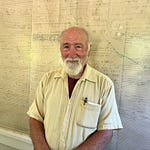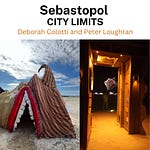Last spring, Sara Gramm was named the new superintendent of Sebastopol Union School District, which includes Park Side (TK-4th) and Brook Haven (5th-8th) schools. She succeeds Linda Irving, who had been in the role for ten years. Sara has been Assistant Superintendent since 2017.
Sara grew up going to Sebastopol schools including Brook Haven and Analy. She student-taught at Park Side and then was hired by Sebastopol Union as a teacher at Pinecrest. She has been working as an educator in the District for over twenty years and is now its superintendent.
NOTE: Sara and I talk about the impact of smart phones and other devices on the lives of students. While we don’t get much into the details, I’m interested in learning more from our readers who are parents raising children with ever-present media and communications devices. What limits do you set on their usage? How do you talk to them about their phones and social media? Do you have any advice you’d like to share? Please let me know by email - dale.dougherty@gmail.com - or in the comments below.
Transcript
Dale: Are you at the school?
Sara: I am in the district office today.
Dale: Now the district office is different than Park Side.
Sara: The district office is on the backside of the block behind Park Side. But I'm still the site principal at Brook Haven, the middle school.
Dale: I'm here with Sarah Gramm, and she is the new superintendent of Sebastopol Union School District, and that includes Park Side and Brook Haven and also the CASTLE program.
Dale: Where did you go to elementary school and what was that experience like for you?
Sara: So I grew up here in Sebastopol. I went to Apple Blossom Elementary, and then in middle school, I transferred into town and went to Brook Haven. So I am the principal of the middle school that I graduated from.
Our childhood was full of the activities and sports and parents who are volunteering and being on campus and coaching and all of that. And then I attended Analy, went to the San Rosa Junior College for two years, and then I transferred to Dominican University in San Rafael and got my bachelor's and my teaching credential from there.
Dale: What was your first assignment as a teacher?
Sara: So I started student teaching at Park Side in 1999, and I learned from some of the best teachers. I worked with Paula Martens and Karen Reese and Julia Aiello and Bonnie Bowen. Then I was hired right after I finished student teaching and I was hired for a third and fourth grade combination class at Pinecrest.
So I taught there for several years before I moved back over to Park Side. So I've taught first through fifth grade and every combination of those grades. So I've been with the district for: this will be my 24th year. And with it during that time, we've seen so many changes.
Dale: Yeah, I want to talk about those as we get into, but first you've been assistant superintendent since 2017. And so this is a natural promotion to become superintendent and the previous superintendent was Linda Irving, and she retired in July. What did you learn from Linda?
Sara: Linda? We really lucked out in Sebastopol for the first, what my first 10 to 13 years, we had several superintendents. So a lot of interim superintendents. We didn't have a lot of continuity. And so Linda coming in for the last 10 years has really built us a fantastic foundation.
We're really doing well right now. And it's really exciting to see what that continuity brought us because Linda is a great role model for being out in the community and making those community connections. And that's one of the things that we're working on right now is a partnership with the Center for the Arts.
We did that during COVID as well to provide distance learning support for our students with the staff at the Center for the Arts. She's just always visible, her connection to Rotary, making sure she's been out and about, and really just singing the praises of Sebastopol Union, and I think her network, which is statewide, she's introduced me to, and that as well has really helped as a small school district, championing the things that we need as a small school district, which is different than a larger district.
We wear many hats. We do all the jobs, whether it's crossing guard or lunch duty, or any of those things. But being able to see that in action with her, she always said she never wanted to give up being a principal and being with the kids, even in that superintendent role.
And, I'm the same way. I didn't imagine that I would be at this point in my career right now. I just always assumed I'd be teacher. Site principal was great. This is a new challenge.
Dale: So you're coming on with a whole new team. Can you tell us a little bit about the changes at Sebastopol Union?
Sara: So we're excited to have Molly Bulwa continue. She's been the district vice principal for the past six years, and she's floated between the two campuses. She's taking the helm at Park Side. She grew up here in Sebastopol as well. She went to elementary school in Sebastopol and then high school at Analy.
She's really excited to continue building community spirit at Park Side that Linda has started and just really make the connections with our families as they come in kindergarten, because we've really developed a pretty fantastic community. So she's excited to be here.
Then we're bringing Rachel Lasek from Analy high school over as our vice principal and curriculum specialist. She actually is a graduate of Sebastopol Union School District and Analy as well. So she's very excited to be home and is looking forward to taking the charge with curriculum. We know, statewide, there was a huge drop in math abilities during COVID and her math expertise as being a math teacher at El Molino for years is really going to play nicely into that, rounding out our team. So we're looking forward to having her.
Dale: Since you've been in the district for this long, it's not just the five years you've been assistant superintendent, but there's been a lot of change. You mentioned it earlier. What are the things to really point out. One of them is Pinecrest is gone, right? What happened to it? Is it a charter?
Sara: We lease Pinecrest to Twin Hills District for their Sunridge Charter Program. The board really looked at wanting to make sure that it was being utilized by students and so they're making that happen in the long term lease there.
So it's great to see that the campus is still being used. That was where I started my teaching, first teaching job, but we're happy that it's being used.
Park Side will house our TK to 4th grade, just size wise, that's what fits. And then Brook Haven, we have 5th through 8th grade. Our 5th graders, even though they're on the middle school campus, they still operate in their self-contained classrooms like a typical 5th grade. And they get to then also be involved in our music program and things like that. So it's a wonderful addition. And it's a great stepping stone for them, I think, being comfortable moving into middle school, it's not such a big step.
Dale: How else in other ways have the schools changed? Are they smaller than they used to be?
Sara: Interestingly enough in the last couple of years, our enrollment is creeping back up again. We've definitely declined over the years, but at this point we're holding steady and growing, which is really exciting for us. Both schools. So we're not at capacity. It's like growing pains, right? We want more students and they're coming. We've got waiting lists in certain grade levels. It's been really exciting. It's a good problem to have.
Dale: How have charter schools impacted Park Side and Brook Haven?
Sara: So there is definitely, the thing I love about our school district is that we are the most diverse school district in the area. Whether that's socioeconomically or diversity wise, we are the most diverse and that definitely, I think, adds to-- it's a benefit to us. It's a benefit to our students. Does it make things harder as far as making sure we're meeting the needs of our students? Sure. In the real world situation, our demographics do look different. It's something that we're really proud of and the district has embraced.
Dale: When you look at reading proficiency or math proficiency from what I can see from SCOE, it looks like about under 50% reading proficiency at Park Side and maybe a little better on math proficiency, what's behind that? Do you have a plan to change that? It's really such an issue if we find half the students not at grade level in reading and math.
Sara: I think that the latest scores will show greater improvement than that. And so we continue to see improvement in all areas.
One of the things that we've done, we were really on a great stretch right prior to COVID as far as utilizing data and having our teachers work in teams to really solidify plans for student achievement and we made huge gains in that year prior to COVID. So we know that it works and we know that the hard work of that, paid off.
Dale: What is it that works? What do you mean?
Sara: It's utilizing data to inform instruction. And so whether that's the different assessment tools that we're using to really hone in on where the holes are and what needs to be done, that's paid off, and allowing our teachers time to collaborate to be able to make those plans.
Getting back from COVID and getting everybody back on track and getting used to being at school and redefining the importance of attendance, it has been huge. And so this last spring we did a lot of work kind of digging back into that assessment and the instruction and that'll continue this following year.
We've worked with Dr. Catlin Tucker on engagement. So how to best differentiate instruction within the classroom and then use that for engagement. Those are the things that pay dividends but allowing our teachers the time it takes to really focus on that is important. That's a goal of ours, but we know we can do it. Wasn't a problem, like I said before, and so we have to allow them the time to work on that.
Dale: I hear that coming back from COVID that there's kind of kids need to be newly socialized to being in a group again.
Sara: Exactly. So all of the social emotional piece of learning is key and everything, whether it's the playground, whether it's the lines for lunch, all of those are learning opportunities.
And so it's been really fun to see, I'd say this last year, things were much more normal. And we're looking forward to having built that consistency now and going forward.
Dale: I'm wondering what, how do you advise parents to help their children in school? What kind of things do you tell them?
Sara: Most of it is reading with your child. It's really taking every language opportunity that you can get when you're with your child, whether it's the grocery store and talking about the things that you run into. It's finding things that you like. It might not be a book. It might be a magazine. It might be a journal. Reading comes in many different forms and that's really important. But also we know that we have work to do in helping make sure that our families know how they can help their child. That's one of our things this year for Back to School Night at Brook Haven. Rather than having a traditional back to school night that families might go from classroom to hear about the teacher's syllabi, and things like that, is actually what you can do to help your child succeed.
Whether that's checking Aeries for grades and Google Classroom and walking them through those steps because those are the pieces that are important. Being actively engaged and wanting to know what your student is doing so that they know that what they're doing at school is important.
Dale: If you think back over the 20 years you've been an educator, children's lives are more complicated and parents lives are more complicated than they ever been. And one of the elements is technology. They are exposed to technology earlier. We used to talk about the TV growing up, but now it's really the iPad or the iPhone, the other devices. Probably not the biggest issue at Park Side, but I'm wondering, how do you talk to parents about kids' relationship to their phones, and we see a lot of challenging behaviors.
Sara: It's tough. And it's tough to tell someone that they need to put their phone down as well because we're modeling what we're doing, with our own children all the time.
We have partnered with the Sonoma County Sheriff's Office and the Sebastopol Police Department to do different education nights for parents, recognizing what's too much or what this means or what this can lead to. Or these apps or things that you think are harmless, what that might actually lead to and informing them, because I think a lot of people go about their day and they do what they do on their phone, but they're not necessarily paying attention to what's happening to the students.
Dale: It was certainly easier to monitor TV usage when you had one TV and you could turn it off, or you say, go to your room and they don't have access to that. I heard a recent statistic that one of the issues kids are getting less sleep these days because they can take that phone into their room and they're doing whatever they do instead of sleeping.
Sara: We see that a lot. It's a lot of, empowering parents to realize that they have the power and that they are paying for the phone and
Dale: Creating limits, right?
Sara: You have to set limits. Exactly.
Dale: I'm glad I raised my kids, mostly before these things became everyday problems, but it is a real concern and I think both parents and the children are trying to figure that out.
Sara: Trying to teach students how to check themselves as well, right? They're not always able to, or their parents might not be home at night to regulate them, but trying to get them to recognize where the downfalls can be.
Dale: Good luck on that.
Sara: If only their brains were fully formed.
Dale: That's true, but it's even true at the high school and college levels, they have the most powerful technology in the history of mankind, and their brains aren't really adapted to understanding it.
Let me ask you, what do you enjoy most about the first day of the school year, which is a couple weeks away?
Sara: It's the students. It's seeing their smiles and they're being happy. It's been a tradition for the last few years. Our teachers are out front with huge welcoming signs for students, and seeing their faces as they get out of the cars. And this is middle school tween and teenagers.
But when they know that where they're headed is a great place, they're excited. I just ran into former students that are now 30 year olds, and they're turning still commenting on things. So it's that the piece for me, which is why continuing this position as superintendent and principal is important because I can't give up the kid part.
Dale: Good luck to you in your first year as superintendent and please let us know if there's anything you need or anything happening that we can share with the community.
Sara: Thank you. We will.
















